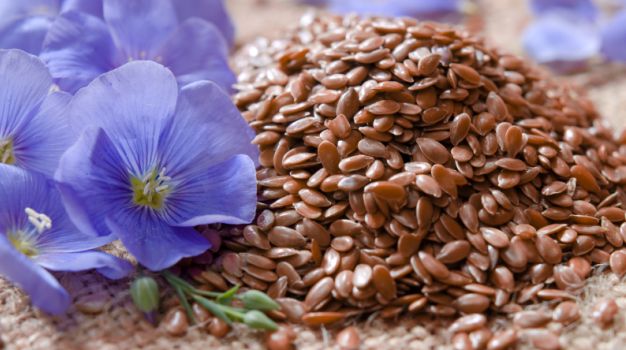
1. Omega-3 Fatty Acids: Flax seeds are one of the richest plant sources of alpha-linolenic acid (ALA), a type of omega-3 fatty acid. These essential fatty acids are crucial for heart health, brain function, and reducing inflammation in the body.
2. High Fiber Content: Flax seeds are an excellent source of dietary fiber, both soluble and insoluble. This fiber content aids in promoting regular bowel movements, preventing constipation, and supporting digestive health.
3. Rich in Lignans: Flax seeds contain high levels of lignans, which are plant compounds with antioxidant and estrogen-like properties. Lignans may help reduce the risk of certain cancers, particularly breast and prostate cancers.
4. May Help Lower Cholesterol: The soluble fiber and plant compounds in flax seeds have been associated with reduced LDL cholesterol levels, which may lower the risk of heart disease and stroke.
5. Potential for Reducing Blood Pressure: Some studies suggest that flax seeds may help lower blood pressure levels, attributed to their omega-3 fatty acids and lignan content.
6. Supports Digestive Health: The fiber content in flax seeds promotes healthy digestion by regulating bowel movements and preventing digestive issues like constipation and diarrhea.
7. May Aid in Weight Management: Flax seeds are relatively low in calories but high in fiber, which can help promote feelings of fullness and reduce appetite. Including flax seeds in your diet may support weight loss or weight management efforts.
8. Potential Cancer-Fighting Properties: The lignans in flax seeds possess antioxidant properties that may help protect against certain types of cancer by neutralizing free radicals and reducing inflammation in the body.
9. Provides Antioxidants: Flax seeds contain various antioxidants, including lignans, phenolic compounds, and vitamin E, which help combat oxidative stress and reduce the risk of chronic diseases.
10. Supports Skin Health: The omega-3 fatty acids and antioxidants in flax seeds may contribute to healthier skin by reducing inflammation, promoting skin hydration, and protecting against damage from UV radiation and environmental pollutants.

Post Your Comments